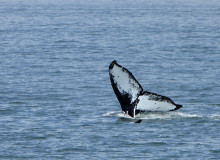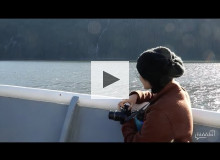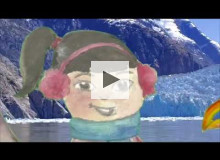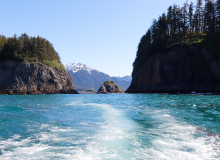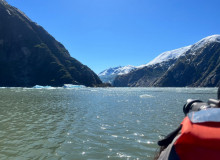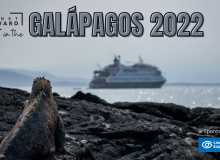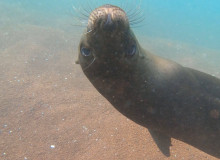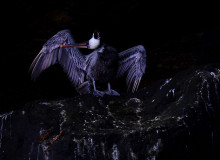Lindblad Expeditions
Planet Forward Correspondent | Ithaca College
HappyWhale, a website created in 2015, uses a unique algorithm to identify and track humpback whales. It relies on photographs from ordinary people to further scientific research.
Digital Editor, Planet Forward
When our 2022 Storyfest winners, traveling with Lindblad Expeditions, explored Alaska's vast and remote terrain, they were surprised that instead of feeling separated, they felt more connected.
SUNY Environmental Science and Forestry
In this sequel to “Coastal Degradation Through Fresh Eyes,” Amka and Suka meet a new friend who introduces them to the issue of melting glaciers and revitalizes them to get back on track with their environmental mission.
George Washington University
Climate change doesn't just exist in data but before our eyes. Lindblad Expeditions naturalist Tim Martin explains that the rust-colored trimlines imprinted on Alaskan mountains paint a clear picture of glacial recession.
Planet Forward Sr. Correspondent | University of Arizona
An expedition with Lindblad in Southeast Alaska shows the realities of climate change and uncovers the mysteries behind the "language" of rocks.
Planet Forward
Alaska is often said to be on the "front lines of climate change" — particularly for the U.S., as it is warming faster than only any state.
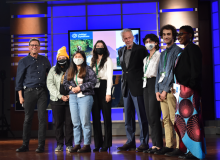
From left: Planet Forward Founding Director Frank Sesno; Leo, Operations Coordinator at Plantita Power; Jennifer Cuyuch, George Washington University, whose story covered Plantita Power; Halley Hughes, University of Arizona; Sven Lindblad; Farzona Comnas, George Washington University; Ryan Bieber, Ithaca College; and Dr. Imani M. Cheers, GW's Director of Academic Adventures. (Not pictured is Delaney Graham, SUNY-ESF.)
Founding Director, Planet Forward
We are pleased to announce the winners of our annual Storyfest competition – the very best stories from college students around the environment, sustainability, and innovative solutions from the past academic year.
Planet Forward
In late January 2022, four Planet Forward Storyfest 2020 winners traveled with Lindblad Expeditions to the Galápagos by way of Guayaquil, Ecuador. The journey also marked a return to storytelling expeditions for Planet Forward, as it was the first... Read More
Planet Forward Senior Correspondent
The Galápagos Islands are famous for being the inspiration of Charles Darwin’s theory of evolution. These days, legal mechanisms protecting the ecosystems surrounding the islands themselves are also evolving.
Planet Forward Senior Correspondent
When we think of the Galápagos islands, we think of the incredible biodiversity that once inspired Darwin’s theory of evolution. But what many of us don’t learn about is the humans who also live here.

